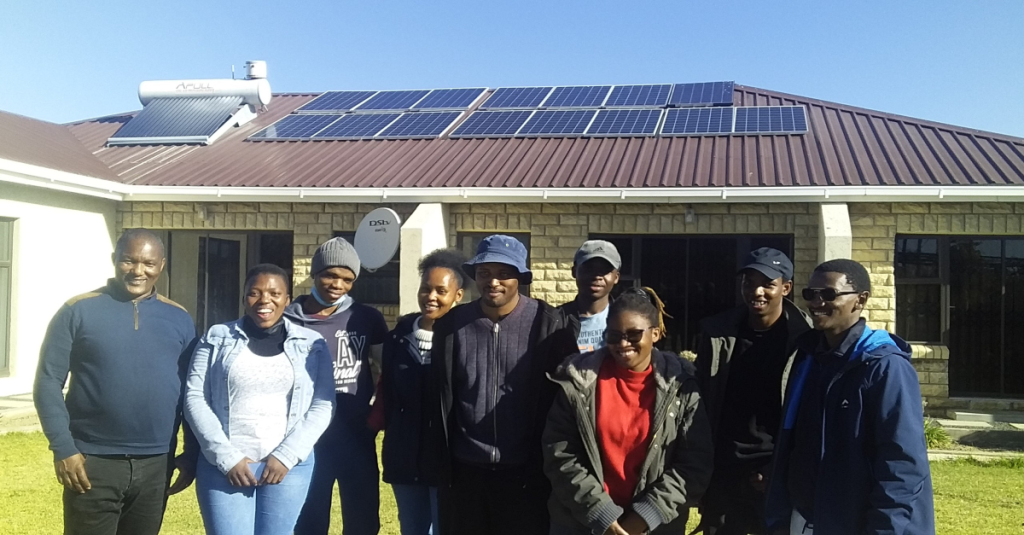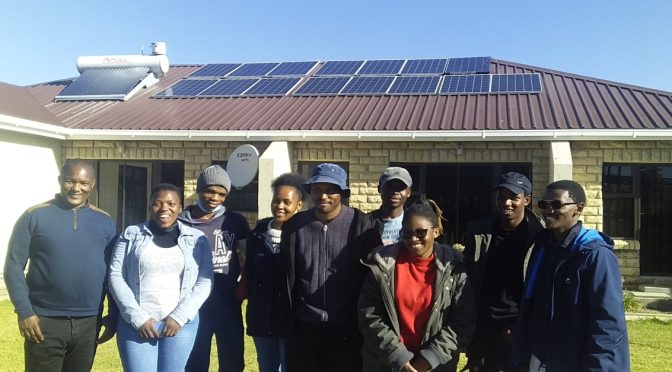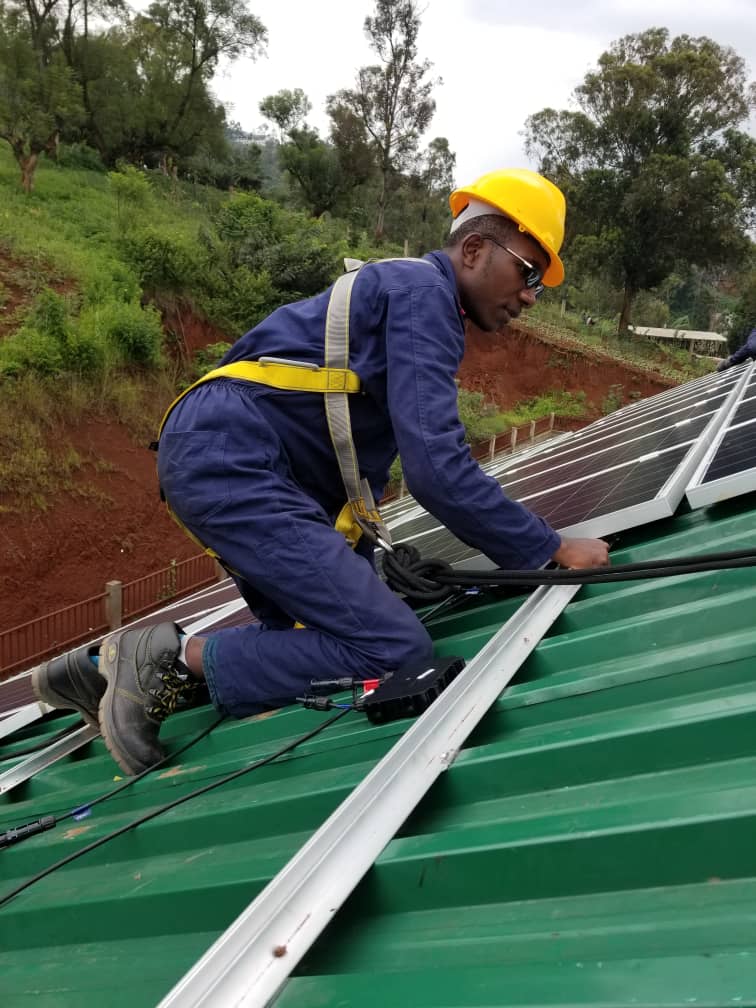Jane Jamila Nakasamu is on a mission to bring clean energy solutions to the rural communities in Zambia. The 26-year-old has been working tirelessly in promoting bioenergy as an alternative to charcoal and firewood in lower-income families, to increase access to clean cooking.
“We work closely with women in these communities to enable a mindset shift and better penetration of renewable energy solutions,” she says.
Jane aspires to expand her company, Greenbelt Energy’s network across Southern Africa and to also tap into solar energy. “This enables us to reach a wider market and to serve more communities,” she says.
Like Jane, a new generation of African entrepreneurs are using their ingenuity to bring affordable, clean energy solutions to some of the most underserved communities. However, small and medium-sized enterprises (SMEs) working to promote renewable energy in the region are facing the challenges in adopting sound business practices and increasing business sustainability.
To overcome some of these challenges and strengthen the capacity of renewable energy entrepreneurs in the Southern African region, the International Renewable Energy Agency (IRENA) and the SADC Centre for Renewable Energy and Energy Efficiency (SACREEE) established the Renewable Energy Entrepreneurship Support Facility (ESF) in April 2017. Entering its third cycle this year, the Facility now also includes Small Island Developing States (SIDS) in the Indian Ocean, with a focus on women and clean cooking access.
“The programme has helped me achieve a deeper understanding not just in bioenergy, but also in other renewable energy technologies, which allows me to broaden my products and services,” says Jane.
Pioneering SMEs that sell simple products like solar water heaters, generators and water pumps help the acceleration of renewable energy deployment in rural Africa. Forty-year-old Maud Le Boulh is a budding entrepreneur whose firm AG Energies designs and distributes solar appliances to low- and moderate-income households in Tanzania.
Photo Credit: Tech Power Services
She feels the Support Facility has helped her company with technical support in developing viable business plans. “The ESF programme has given us the skills and tools to understand the community’s needs better. We have now been able to analyse and propose the appropriate water pumps that meet the needs and reality of our clients—the farmers on the ground,” says Maud. “The success of these pumps lies on their affordability and ease of maintenance, which really help the farmers,” she continued.
One of the main challenges faced by most SMEs in the region is in attracting investments. The ESF programme helps enhance entrepreneurs’ skills in developing successful financing proposals and understanding banking and finance ecosystem.
In Lesotho, after applying the knowledge he obtained in the programme, Anadola Tsiu saw an increase of financial turnover in his company, Precise Technical Solutions. The company has since been able to increase the number of bankable renewable project proposals submitted to financial institutions.
On the other side of the region, Lohose Talopondja Joseph Joe, CEO and founder of Congo-based Tech Power Services, shared how he benefits from the Support Facility. His company has been working on the deployment of solar mini-grids in rural Congo for the last seven years, and the programme has provided him with skills in the design, evaluation, and commercial viability of renewables mini-grid projects.

Photo Credit: Precise Technical Solutions
According to Lohose, the programme has not only upgraded his skills in project planning, conceptualisation, scoping and technical procedures, but it has also helped him to be a part of a strong business network. “Networking with other emerging South African Development Community leaders in renewable energy forms the basis of our future partnerships in finding sustainable solutions for rural electrification in Africa,” he adds.
Today, the Facility seeks to support more entrepreneurs, specifically in Southern African and Indian Ocean regions. With the support of the United Arab Emirates government this year, the Facility is currently inviting its third cohort of entrepreneurs in particular women, with a focus in clean cooking access. A selection process will take place before successful applicants are announced. The closing date for the application is 13 November 2022.
More info can be found here.



